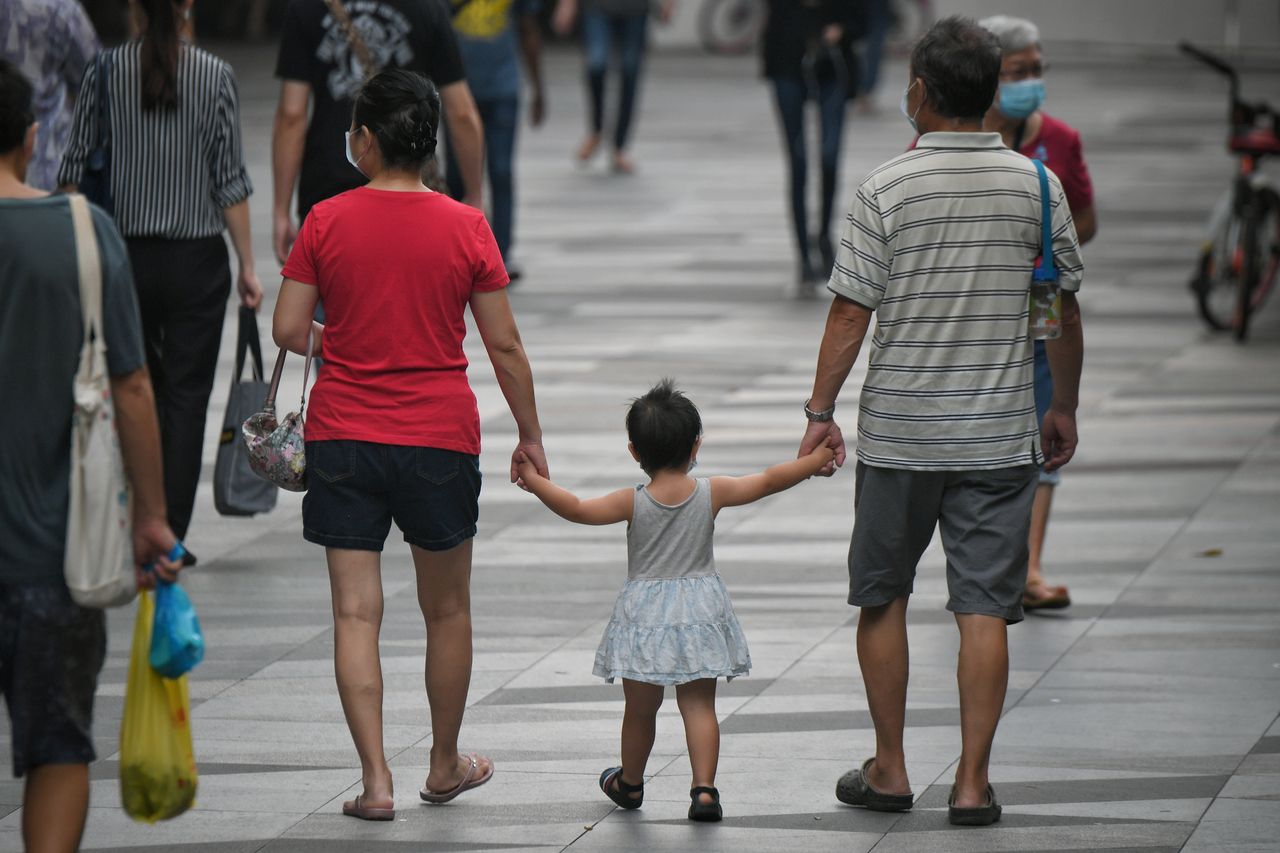Tackling patriarchal mindsets starts at home, say panellists at dialogue
Sign up now: Get ST's newsletters delivered to your inbox

A patriarchal mindset alienates and demeans the potential of our daughters, wives and women in our lives.
ST PHOTO: KUA CHEE SIONG
Follow topic:
SINGAPORE - Sharing responsibilities like cooking and caregiving with wives and treating sons and daughters the same are ways in which men can tackle patriarchal mindsets at home.
These were suggestions made during a virtual dialogue session organised by crisis shelter Casa Raudha and welfare organisation Emaan Catalyst Community on Saturday (June 19).
The dialogue, titled Breaking The Patriarchal Mindset: Men's Perspective, featured three panellists - Chua Chu Kang GRC MP Zhulkarnain Abdul Rahim; Ustaz Irwan Hadi, deputy director at the Office of the Mufti; and Mr Hafiz Othman, executive director of Emaan Catalyst Community.
Patriarchy refers to a system that promotes economic and social inequality of women, among other things.
Citing the increase in family violence cases and domestic complaints reported last year, Mr Zhulkarnain stressed the urgent need to address patriarchal mindsets in society as family units face more stress during the pandemic.
"I've seen feedback... that due to the increase in interactions at home and perhaps due to the physical constraints, family members are more prone to misunderstandings between one another and disputes with neighbours," he said.
"This may be caused by inequitable divisions of responsibilities at home or unfair expectations of a partner in terms of child caregiving and housekeeping roles in the homes. Inevitably, such behaviour stems from patriarchal mindsets or deep-seated prejudices on what is the role of a wife, mother, sister or daughter at home. Some of these prejudices have led to more serious consequences such as the infliction of violence at home."
Mr Zhulkarnain shared some of his own experience managing caregiving and domestic duties with his wife during the Covid-19 circuit breaker last year, whether it was helping his children with home-based learning or preparing daily meals.
He said: "A patriarchal mindset alienates and demeans the potential of our daughters, wives and women in our lives. To have this discussion is the first step in the right direction."
Mr Hafiz said it was important to adopt aspects of positive masculinity, or positive male gender roles and norms. This could be done by engaging more men to actively reject patriarchal norms and amplifying the voice of involved fathers and husbands as positive role models.
He said: "We expect girls to be more nurturing and more sociable. I think we also need to educate our boys to look into these areas and be able to communicate so they can expand their emotional intelligence and not resort to aggression."
Acknowledging that patriarchy was a universal issue faced by all societies, Ustaz Irwan said it was important for people to adopt a family-first approach when practising compassion and empathy.
In response to a question from an attendee on what efforts the Government could make to tackle patriarchal mindsets, Mr Zhulkarnain said: "We can have loads of legislation (such as) anti-discrimination laws, fair employment practices, but ultimately, whether we have legislation, we have campaigns, we have public awareness, everything boils down to each of us."

Mr Zhulkarnain added that community leaders could also help the state in policymaking to ensure that patriarchal norms are dismantled.
Those who need support can call the National Anti-Violence Helpline at 1800-777-0000 and the National Care Hotline at 1800-202-6868.

